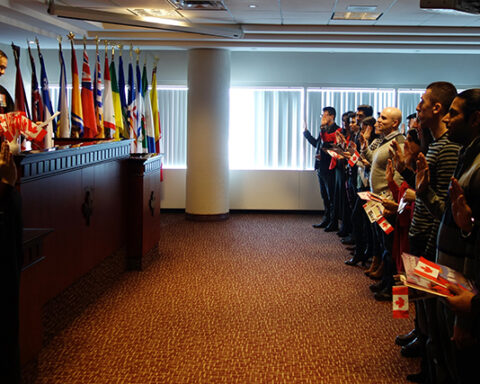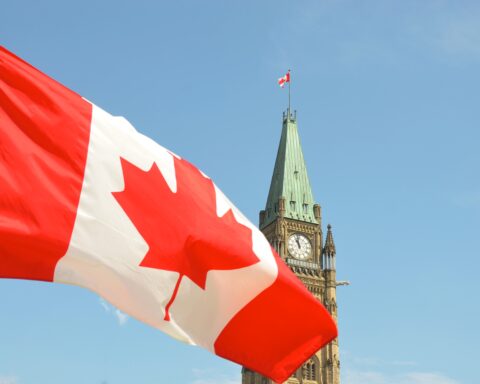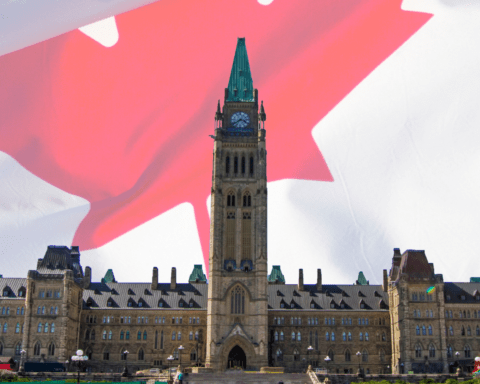Activists from ethnic communities in Canada said they will fight a new law that changes the Citizenship Act which gives government the power to strip the citizenship of anyone convicted of terrorism, treason, or spying.
Former University professor and now Filipino community leader Aprodicio Laquian denounced the law as very “un-Canadian” and vowed that Filipino groups will fight this harsh policy.
“Those are all very negative policies and we have been writing and sending letters to the parliamentarians in Ottawa objecting to all of these because these are really discriminatory,” Laquian said.
The British Columbia Civil Liberties Association is taking a two-pronged approach to reverse the law.
“If this law can’t be repealed and won’t be repealed in the near future, then we’ll turn to litigation,” said Carmen Chiu, senior counsel of the association.
The Canadian Bar Association has warned that the changes to the citizenship law will open the floodgates to more offences being added to the list to justify citizenship-stripping.
The law also makes it harder to become a Canadian citizen by increasing the length of time to four years and increasing the citizenship fees. This will not take into account time already spent working in Canada and will affect applications from former live-in caregivers, and temporary foreign workers.
“It’s going to be a setback as far as the fees are concerned, medyo mahal nga, you have to wait longer as well,” said Effie Garcia of the Tri-Cities Filipino Canadian Network.
Former caregiver Nina Tolentino added, “When you came here as a live-in caregiver, you wait for two to three years and then to become a permanent resident and another four years.
The Canadian Bar Association has warned that the changes to the citizenship law will open the floodgates to more offences being added to the list to justify citizenship-stripping.
To date, more than 100,000 people have already signed the petition to repeal the law.
‘Second-class’ status for some
The new immigration law enacted by the Canadian government dictates that ‘second class’ citizens – immigrants who obtained Canadian citizenship – may have their citizenship status stripped at any point, critics said.
Under this law, the only Canadians who can never lose their citizenship are those born in Canada who do not have another nationality (and are not eligible to apply for another nationality). No matter what crimes they may be accused of, these ‘first-class’ citizens can never have their citizenship taken away. On the other hand, Canadians with another nationality (and those who are eligible to obtain another nationality) now have second-class status, even if they were born in Canada: under Bill C-24, their citizenship can be stripped.
Many have also pointed out that some Canadians may not even be aware that they hold dual citizenships based on their origins, marriage and other family ties.
There was stiff opposition to the rule in Canada because many claimed that since this cannot happen to those born in Canada, the new law would be discriminatory. The government of Canada has justified the new law saying that was meant to protect Canadians.
“Our Government knows that there is no higher purpose for any government than to ensure the safety and security of its citizens . . . that is why we are taking steps to confront the ever evolving threat of jihadi terrorism by revoking citizenship of dual nationals who have been convicted of heinous crimes such as terrorism, espionage for foreign governments or taking up arms against Canada and our brave men and women in the Canadian Armed Forces,” Chris Alexander, Canada’s Citizenship and Immigration Minister was quoted as saying.
Legal experts warn that the list of offences that could lead to the removal of citizenship might be expanded in the future. Additionally, Bill C-24 punishes criminal activity with exile – a practice abandoned hundreds of years ago that has no place in today’s democracy.
As a result of the new provisions that came into effect last month, warnings to dual citizens have been circulating online, especially on Facebook. Some posts warn that dual citizens, including those who were born in Canada, now have “second-class status” and that their Canadian citizenship can be “stripped arbitrarily.”
Many have also pointed out that some Canadians may not even be aware that they hold dual citizenships based on their origins, marriage and other family ties.
“Canadians with another nationality (and those who are eligible to obtain another nationality) now have second-class status,” the British Columbia Civil Liberties Association said earlier this month.
Rocco Galati, a Toronto-based constitutional lawyer, told CTVNews.ca that a court challenge of Bill C-24 is in the works. He expects it to proceed in the late fall or early winter.
He said that although controversy over Bill C-24 has been brewing since its introduction, there is renewed interest since it became law.
What else is in Bill C-24?
Also known as the Strengthening Canadian Citizenship Act, the bill received Royal Assent and became law in June 2014. The new legislation includes major changes to the citizenship application and approval process. That includes requiring permanent residents to be physically present in Canada longer than before in order to gain citizenship, higher fees for citizenship applications and expanding the age bracket for citizenship tests.
The new law is also prompting fears among some ethnic communities that they’ll be unfairly stigmatized.
Those from countries that don’t allow dual citizenship told government focus groups last year they had no issue with the law stripping of Canadian citizenship from dual citizens convicted of terrorism, treason or spying offences.
But other participants said while they agreed people convicted of such offences should be punished, they were alarmed by the potential longer-term implications of the measures.
The government has given no indication that the Strengthening Citizenship Act would be expanded to apply to other crimes; the revocation measures were explained as a direct response to ongoing global terrorist threats.
“For participants from places where dual citizenship is permitted, such as India or the Philippines, there were clear concerns that dual citizens as a whole were being stigmatized and singled out,” says a newly-published report on the Citizenship and Immigration department sessions.
“. . . It also left many wondering whether they should still consider retaining dual citizenship with their original home country out of fear that their Canadian citizenship could be revoked more easily by virtue of the fact that they are dual citizens or out of fear that with time, the criteria for revoking citizenship for a dual citizen is expanded.”
The ability to revoke a dual national’s Canadian citizenship was contained in a law passed last year that overhauled many elements of the Canadian citizenship program. The revocation provisions only came into effect last month.
The government has given no indication that the Strengthening Citizenship Act would be expanded to apply to other crimes; the revocation measures were explained as a direct response to ongoing global terrorist threats.
Human rights groups have argued the new provisions effectively create two tiers of Canadian citizenship, one for those born in Canada and one for those born elsewhere.
Several have included the issue as part of their briefs to the United Nations Human Rights Committee’s scheduled review this week of how well Canada is meeting its obligations under the International Covenant on Civil and Political Rights.
In the focus groups, however, what seemed to be more on participants’ minds were the other changes to the citizenship process, including the longer residency requirement and new fees.
“The main criticism participants had about the television concept was the reference to protecting all Canadians from dual citizens who commit terrorist acts. This was seen as out of place in an otherwise ‘feel good ad,'” the report said.
“On a related note, participants questioned why the advertisement provided detail regarding the revocation policy, which applies to the few, while being vague on other changes that would impact on more individuals who are applying for citizenship.”
The series of 14 focus groups were held in December in B.C., Manitoba, Ontario and Quebec to solicit the views of those who have been in Canada less than 10 years on a range of issues.
Published in partnership with Asian Pacific Post.




